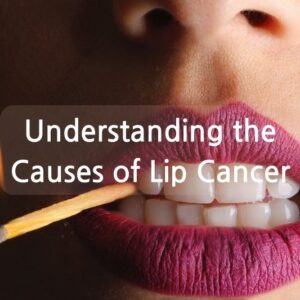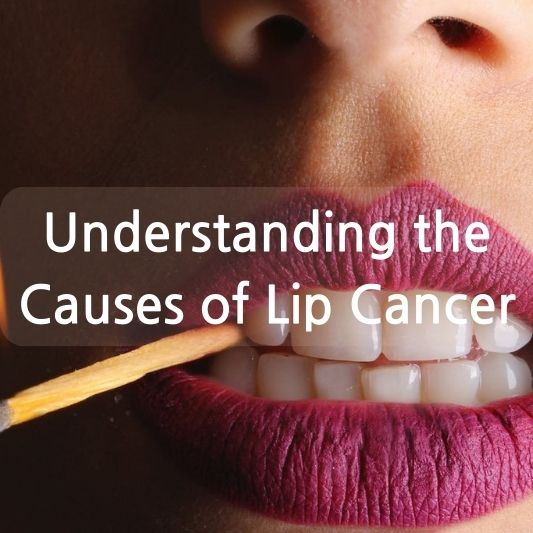Lip cancer, though relatively uncommon, can be a serious and potentially life-threatening condition if not diagnosed and treated early. Understanding the causes of lip cancer is crucial in its prevention and management. In this article, we delve into the various factors that contribute to the development of lip cancer and explore preventive measures individuals can take to mitigate their risk.

1. Sun Exposure
Prolonged exposure to ultraviolet (UV) radiation from the sun is one of the primary causes of lip cancer. The lips are particularly vulnerable to sun damage due to their thin skin and lack of melanin, the pigment that provides natural protection against UV rays. Over time, cumulative sun exposure can lead to the development of cancerous lesions on the lips.
2. Tobacco Use
Tobacco use, whether in the form of smoking or chewing, is a significant risk factor for lip cancer. The harmful chemicals present in tobacco products can irritate the delicate tissues of the lips and contribute to the formation of cancerous growths. Smokers and tobacco users are at a much higher risk of developing lip cancer compared to non-users.
3. Alcohol Consumption
Excessive alcohol consumption has been linked to an increased risk of lip cancer. Alcohol can irritate the mucous membranes of the mouth and throat, making them more susceptible to the damaging effects of other carcinogens, such as those found in tobacco smoke. Individuals who both smoke and drink alcohol excessively face an even greater risk of developing lip cancer.
4. Human Papillomavirus (HPV) Infection
Infection with certain strains of the human papillomavirus (HPV), particularly HPV-16 and HPV-18, has been implicated in the development of lip cancer, particularly in younger individuals. HPV is a sexually transmitted infection that can affect the mucous membranes of the mouth and throat, increasing the risk of cancerous changes in these tissues.
Understanding the role of these risk factors in the development of lip cancer underscores the importance of adopting healthy lifestyle choices and preventive measures to reduce one’s risk. By minimizing exposure to known carcinogens and practicing sun safety measures, individuals can take proactive steps to safeguard their oral health and lower their likelihood of developing lip cancer.
Conclusion
In conclusion, lip cancer is a serious condition that can have profound implications for an individual’s health and quality of life. By understanding the causes and risk factors associated with lip cancer, individuals can empower themselves to make informed decisions about their lifestyle and take proactive steps to reduce their risk. Early detection and intervention are key to improving outcomes for individuals diagnosed with lip cancer, highlighting the importance of regular screening and dental examinations. Through awareness, education, and preventive measures, we can work together to combat lip cancer and promote oral health and well-being.
FAQs
What are the early signs of lip cancer?
Early signs of lip cancer may include persistent sores, lumps, or ulcers on the lips that do not heal, changes in lip color or texture, and unexplained bleeding or numbness.
Is lip cancer curable?
The prognosis for lip cancer depends on various factors, including the stage of the cancer at the time of diagnosis and the individual’s overall health. With prompt diagnosis and appropriate treatment, many cases of lip cancer are curable.
How often should I have my lips checked for signs of cancer?
It is advisable to perform self-examinations of the lips and oral cavity regularly and to schedule routine dental check-ups at least once or twice a year. Any unusual or persistent symptoms should be promptly evaluated by a healthcare professional.
Can lip cancer spread to other parts of the body?
Yes, lip cancer can potentially spread (metastasize) to nearby lymph nodes and other organs if left untreated. Early detection and treatment are essential in preventing the spread of cancer.
Are there any lifestyle changes I can make to reduce my risk of lip cancer?
Adopting a healthy lifestyle that includes avoiding tobacco and alcohol, practicing sun safety measures, maintaining a balanced diet, and practicing safe sex can help reduce the risk of developing lip cancer.
